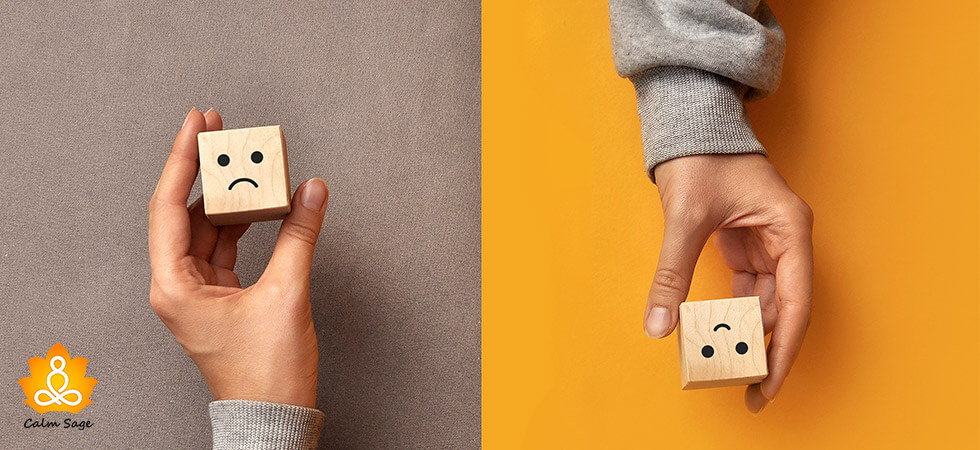10 Common Negative Core Beliefs (And How to Combat Them)

Our minds have a strong influence on how we interact with ourselves and the world around us. This is what many of us get wrong. We fail to realize that the way we think often impacts our well-being, our self-worth, and even our relationships. This isn’t about spirituality and it’s not about manifesting either. This is what “core beliefs” are.
Core beliefs are the beliefs that we have about ourselves, the people around us, and the world in general. They can be positive or negative, just like any other belief or thinking. The reality is shadowed in gray and not everything can be explained in black and white.
Negative core beliefs are harmful and limiting beliefs that impact how you interact with yourself and others. More often than not, these negative beliefs are more like, “I” statements that often reflect your perceptions. Any kind of negative experience in life such as trauma, mental health disorder, or more can influence your negative core beliefs.
Let’s take a look at some of the common negative core beliefs we believe in and how you can combat these beliefs.
List of Common Negative Core Beliefs And How to Combat Them
1. I Am Worthless
One of the most common negative core beliefs we tend to have is, “I am worthless.” If you believe that you’re worthless can undermine your ability to succeed in life. When you believe you have no value, you are convinced that others lie to you when they appreciate your value.
Combat this belief by focusing on positive affirmations. Whenever you feel this belief overpowering your mind, recite a positive affirmation that focuses on your value. This can act as a reminder to consider your self-worth above all.
2. I Am Not Enough
Not feeling adequate is also a common negative core belief example. This negative belief lets you believe that you can never measure up to the expectations of others. For example, when you’re in a relationship, there are certain expectations your partner wants you to meet, so this adds to the pressure of expectations.
You can challenge this core belief by taking stock of your situation. Consider what circumstances caused you to be in a relationship, for example. Were you emotionally healthy? Addressing these issues can help you transform your negative core beliefs.
3. I Am a Failure
We have a poor understanding of the word “failure”. This misunderstanding can send mixed signals to the mind and alter your thinking. Saying, “I am a failure” only reinforces the belief that you are undeserving of success and even if you do, you’re doomed to failure.
To combat this negative core belief you can try to change your perception of failure. Failure can either be the end of your goals or a second chance to try something new. As of now, you’re only looking at failure from the former perspective and it’s time to change it to the latter. Just because you failed, doesn’t mean it’s the end.
4. I Can’t Succeed
Another core belief that holds us back is the thinking that “I can never succeed.” This kind of thinking affects our decision-making and contributes to self-sabotaging behavior. For example, you procrastinate submitting your task knowing that if you don’t do it, you’ll lose an opportunity and yet you do it because you believe you won’t succeed anyway.
To transform this negative core belief, you can examine your previous behaviors and reasons you didn’t succeed. Was there anything else aside from self-sabotage that caused you to fail? Or what was it that made you give up? Identify them and consider re-framing those actions.
5. I Can’t Trust Others
There are times when we are betrayed by others and even though it happens quite frequently sometimes it’s hard to understand others’ intentions. However, not everyone is out to betray us. This common negative core belief often holds us back from trusting others even though those people have no bad intentions. This makes us suspicious of trustworthy people and prevents any kind of meaningful connection.
To combat this negative core belief you can try to hold back information from people you don’t trust. Learn to see who you can trust and then allow yourself to share what you believe should be shared with them.
6. I Will Get Hurt
Getting hurt is a part of life. Other people will find ways to hurt you if it gives them an advantage. People are hard to understand and so are their intentions even if they make good choices sometimes those decisions can come back and hurt you. However, if you don’t get involved with people you are bound to end up lonely.
To challenge this negative core belief, you can learn to set boundaries that will act as a shield and help you avoid getting hurt. You can’t avoid people altogether but you can allow boundaries to act as distance in case someone tries to hurt you. This way, you can also learn how to overcome hurt.
7. I Don’t Belong
It’s a thought that often pops up in our minds, unbidden. Also called the imposter syndrome, this negative core belief can become a challenge for many people. This causes you to feel fake and makes you believe that you don’t belong or deserve what you have. It also causes a fear that everything you’ve built would come crashing down if someone sees that you don’t belong. This negative belief can eventually affect your self-esteem.
To challenge this core belief try to gain self-confidence. Work with a therapist to improve your self-esteem and confidence so you begin to believe that what you have and who you are, are true.
8. No One Can Help Me
Well, sometimes, it can be true. Sometimes, we’re stuck in situations where no one can help us, but the problem arises when we begin to absolutely believe that whatever happens, no one can help us and neither can we ask anyone for help.
To combat this belief you can try to keep your expectations reasonable and real. Don’t try to fix problems by yourself that you know others can help you with. Learn to depend on others when needed. Therapists can help you feel empowered to seek help when you need it.
9. I Am Unlovable
Another common negative core belief we seem to have is that we are unlovable. We often force our views onto others and when that doesn’t work, we believe that we are unwanted or unloved. People are different and so are their perceptions. What they believe shouldn’t influence who you are and vice versa.
To combat this belief you can try to understand the source of your hurt. Is it because you were neglected as a child or abused as a child? What caused you to think like this? Work with a therapist to learn more about it and work with them to overcome this past trauma.
10. I Don’t Deserve to be Happy
We all want happiness and peace in our lives, but many of us believe we don’t deserve to be happy. This kind of negative core belief is often rooted in our trauma and mental health. When you believe that you don’t deserve happiness, you do everything to self-sabotage anything that comes your way.
To challenge this core belief, you can create a sense of happiness and peace around you. You can use self-compassion or similar practices to evoke a sense of peace in you. If you need more help, you can reach out to a therapist who can teach you how to be happy or what you can do to transform your negative core beliefs.
What Next?
Many of our common negative core beliefs come from traumatic experiences and unhealthy pasts. You can find traces of these negative beliefs in childhood neglect, abuse, and trauma.
The ways to transform your negative core beliefs listed in this article might help you temporarily manage them. However, it’s recommended that you speak to a mental health counselor to better understand how these negative core beliefs impact your life and how to combat them.
Also Read: Mini-Guide: Cognitive Behavioral Therapy (CBT)
Found this article interesting? Feel free to write to us at info@calmsage.com or leave us a comment in the section below. We’re always happy to hear from you.




















